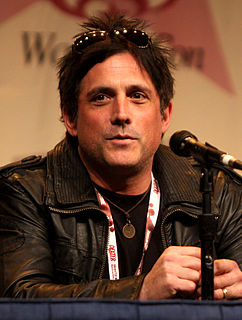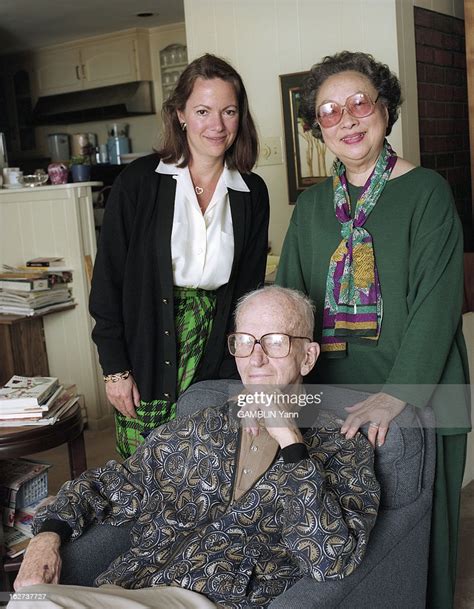A Quote by Brit Marling
Because we're watching so many movies and are consumed by so many stories, science fiction lets you do something a bit fresh and that hasn't been seen before.
Related Quotes
The truth is that Trout, like Vonnegut and Ray Bradbury and many others, writes parables. These are set in frames which have become called, for no good reason, science fiction. A better generic term would be 'future fairy tales'. And even this is objectionable, since many science fiction stories take place in the present or the past, far and near.
Blade Runner is one of my favorite films. But, so many thing influenced me that aren't science fiction because they were just good drama. I grew up watching a lot of French cinema. I was in love with The English Patient, and movies that are very romantic in nature and have a positive message. That's a large part of my fingerprint.
Science fiction, as I mentioned before, writes about what is neither impossible nor possible; the fact is that, when the question of possibility comes up in science fiction, the author can only reply that nobody knows. We haven't been there yet. We haven't discovered that yet. Science fiction hasn't happened.
If we're talking about the science fiction or action genres, I've always tried when I could to do them in a way that's not just cookie-cutter - that they bring something fresh or original to it, have some kind of ideas to it. I've been fortunate, in some sense, to do those kinds of movies that are unique.
Many of the early greats of sf ? Hugo Gernsback (publisher of Amazing Stories) in particular ? saw themselves as educators. The didactic thrust of science fiction got the genre initially pegged as children's fare. It was seen, at its best, as an extension of school and, at its worst, as teenage wish fulfillment.





































